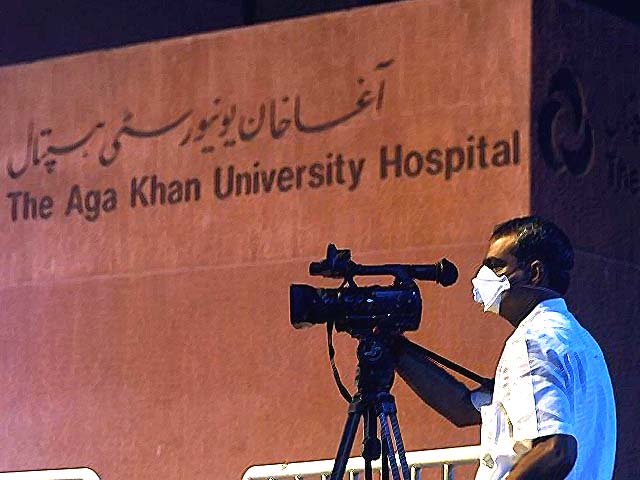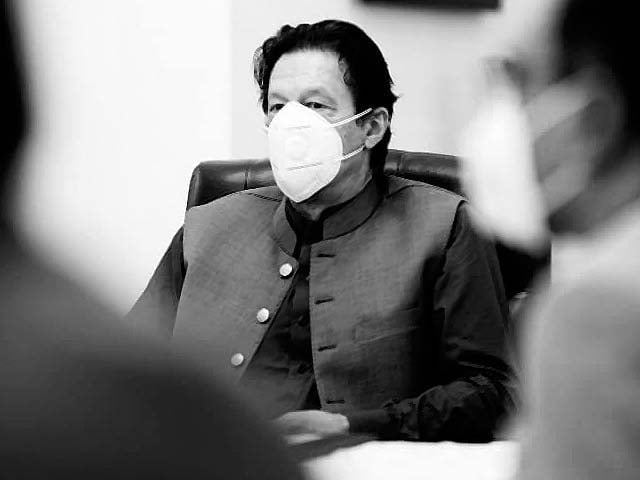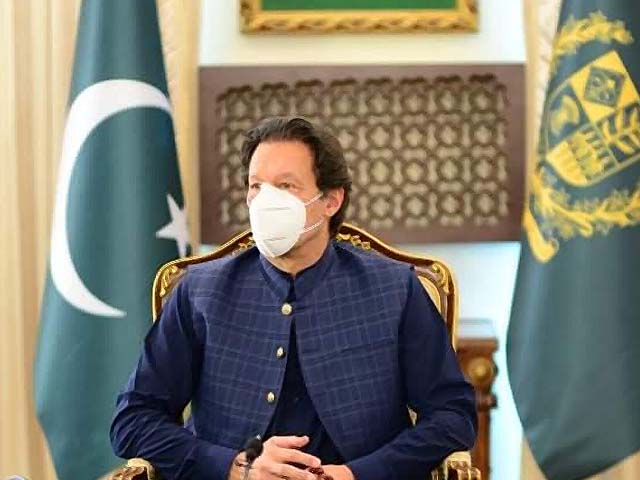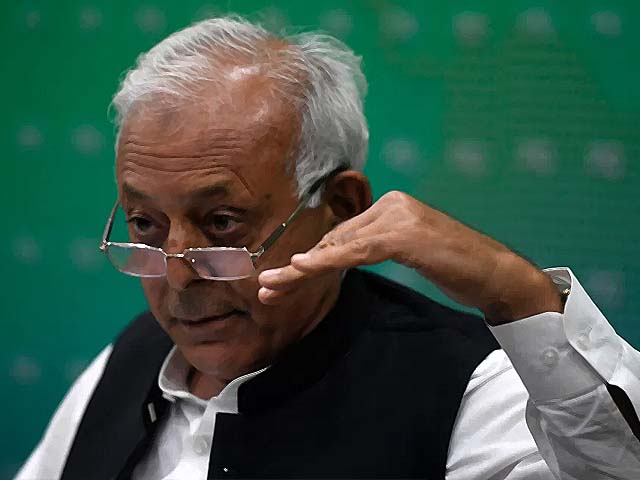
A cameraman wears a protective face masks as he films outside the Aga Khan University Hospital. PHOTO: GETTY
Media sensationalism in the age of COVID-19
The majority of our journalists are simply not equipped to report on issues pertaining to the medical sciences
The COVID-19 outbreak has thrown the world into a state of fear and uncertainty. Hence, countries today are banking on their doctors to save lives, not on their armies or their multinational companies. In Pakistan, many doctors and medical personnel do not have access to personal protective equipment (PPEs) to prevent them from being infected by coronavirus patients while performing their duties. Yet, by putting their lives at risk, doctors across the country are bravely fighting this war against COVID-19. However, despite this, there remain a few journalists, television channels and publications which, just for the sake of ratings, are dispensing news based on a limited understanding of medical science, thus undermining the efforts of Pakistan’s doctors. The recent incident at Mayo Hospital is an example of this.
Recently, a video has been doing the rounds in which a 73-year-old patient suffering from coronavirus can be seen tied to his bed. Several journalists upon watching this clip shared it on social media, instead of consulting doctors first, which resulted in the video spreading like wildfire and dominating many new channels. The “alleged negligence” of doctors, of course, is an attention grabbing headline in a society obsessed with sensational news, even if it comes at the cost of the truth. In an age driven by ratings, likes and clicks, neither journalists nor the masses are interested in carrying out proper research into a matter before commenting upon it. Hence, many seasoned journalists jumped upon the bandwagon without taking into account the medical history of the patient in the video.
In order to delve deeper into this story and uncover the facts behind it I talked to Dr Talha Sherwani, who is an anesthesia specialist and a medical officer at Mayo Hospital Lahore. According to Sherwani,
“Covid-19 attacks the lungs of its victim and a person with a weak immune system catches pneumonia very soon. This particular patient was brought to the hospital with pneumonia, and due to that he was having difficulty breathing. He was disoriented and confused. Given his state, no doctor could have given him a sedative since the chances of him dying in his sleep were quite high as he already was short of breath.”
When asked why the patient was tied to his bed, Sherwani said that this a normal practice in such circumstances, and since most people here are unaware of these practices they automatically assume the worst. Sherwani also said that the patient was not in need of a ventilator since that is only required when the lungs of the victim start collapsing. Furthermore, he stated that under normal circumstances, given the patient's confused state, doctors could have thought about putting him on the ventilator. But, in these times when COVID-19 patients are being admitted in hospitals at an alarming rate and ventilators are in short supply, ventilators are reserved for younger patients or for those who have a greater chance of surviving. This not a problem specific to Pakistan and the same practice has been adopted in Italy.
Now, those who initially made the video and shared it online can be forgiven for not being aware of the procedures hospitals are adopting during these trying times. But, it is problematic when our journalist colleagues discuss alleged negligence without carrying out any research into the matter or discussing the issue with trained medical practitioners. The simple truth of the matter is that the majority of our journalists are simply not equipped to report on issues pertaining to the medical sciences. Hence, the term “alleged negligence” is often used in the press now in an attempt to hold doctors responsible for the death of patients. But the media has to realise that portraying doctors as villains will ultimately only hurt us as a society. Additionally, only relying on the accounts of eye-witnesses who themselves are in a state of panic is also troublesome.
Another doctor, who is working as a neurologist at Polyclinic Hospital and does not wish to reveal his identity, told me that,
“When a patient is brought in to the hospital with pneumonia we first conduct a test to check how critical they are and we assess this by determining their CURB 65 score. In this clinical procedure, the “C” stands for confusion. Often times patients suffering from pneumonia are in a confused state and sometimes they become aggressive. Due to this patients may attempt to pull out the catheter, canula, and nasogastric tubes, so we usually restrain these patients. Now, with COVID-19 patients, we can’t change all these tubes again and again. Hence, it is the doctors who finally have to decide whether the patient needs a ventilator or not.”
With regards to the controversy surrounding the video of the patient at Mayo Hospital, this doctor stated,
“In that particular case it was the decision of the doctors who were present at Mayo Hospital at that time, and I believe they actually decided correctly. Even if I was there in place of them I would have had to do the same.”
Evidently, the narrative of the doctors should have been taken into account when news channels were lambasting doctors over the video of the Mayo Hospital patient. Bullying doctors online or on televisions channels will benefit no one. When in a conventional war, journalists and the masses are required to back the soldiers fighting to defend the country. The same principle should apply in this war against COVID-19, as our doctors are putting their lives and the lives of their loved ones on the line. It is our responsibility, both as journalists and as Pakistani citizens, to put our faith in Pakistan’s doctors and always reach out to them for their side of the story since ultimately only they are capable of saving those afflicted with this pandemic.




COMMENTS
Comments are moderated and generally will be posted if they are on-topic and not abusive.
For more information, please see our Comments FAQ